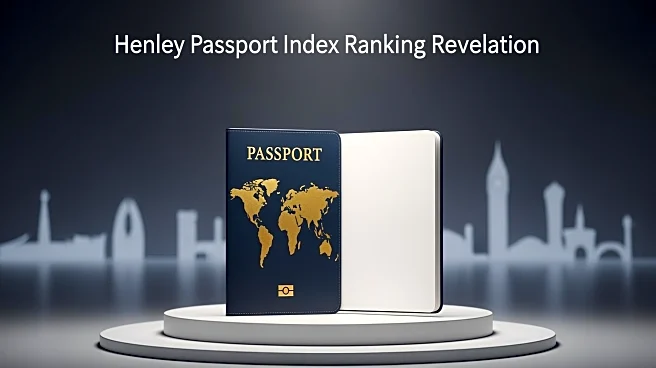What's Happening?
The Henley Passport Index has released its 2025 Global Passport Ranking, revealing that the United States has dropped to 12th place, marking the first time in 20 years that it has fallen out of the top ten. The ranking evaluates 199 passports based on
visa-free travel rights to 227 destinations worldwide. The U.S. passport now offers visa-free access to 180 destinations, sharing its position with Malaysia. Singapore leads the index with visa-free access to 193 countries, followed by South Korea and Japan. European countries such as Germany, Italy, and Spain are tied for fourth place. The ranking is based on data from the International Air Transport Association (IATA).
Why It's Important?
The decline in the U.S. passport's ranking could have implications for American travelers and the country's global mobility. A lower ranking may affect the ease with which U.S. citizens can travel internationally, potentially impacting tourism and business travel. The shift also reflects changes in global diplomatic relations and visa policies, which could influence international perceptions of the U.S. Additionally, the ranking highlights the growing strength of Asian passports, with Singapore, South Korea, and Japan leading the index, indicating a shift in global power dynamics.
What's Next?
The U.S. may need to reassess its visa policies and diplomatic strategies to improve its passport ranking. This could involve negotiating more visa-free agreements with other countries or enhancing bilateral relations to facilitate easier travel for American citizens. The change in ranking might prompt discussions among policymakers and travel industry stakeholders about the importance of maintaining strong international mobility for U.S. citizens.
Beyond the Headlines
The Henley Passport Index's findings underscore broader geopolitical trends, such as the rise of Asian countries in global influence and the shifting landscape of international travel. The U.S.'s drop in ranking may also reflect internal policy decisions and external perceptions, which could have long-term effects on its diplomatic and economic engagements worldwide.















